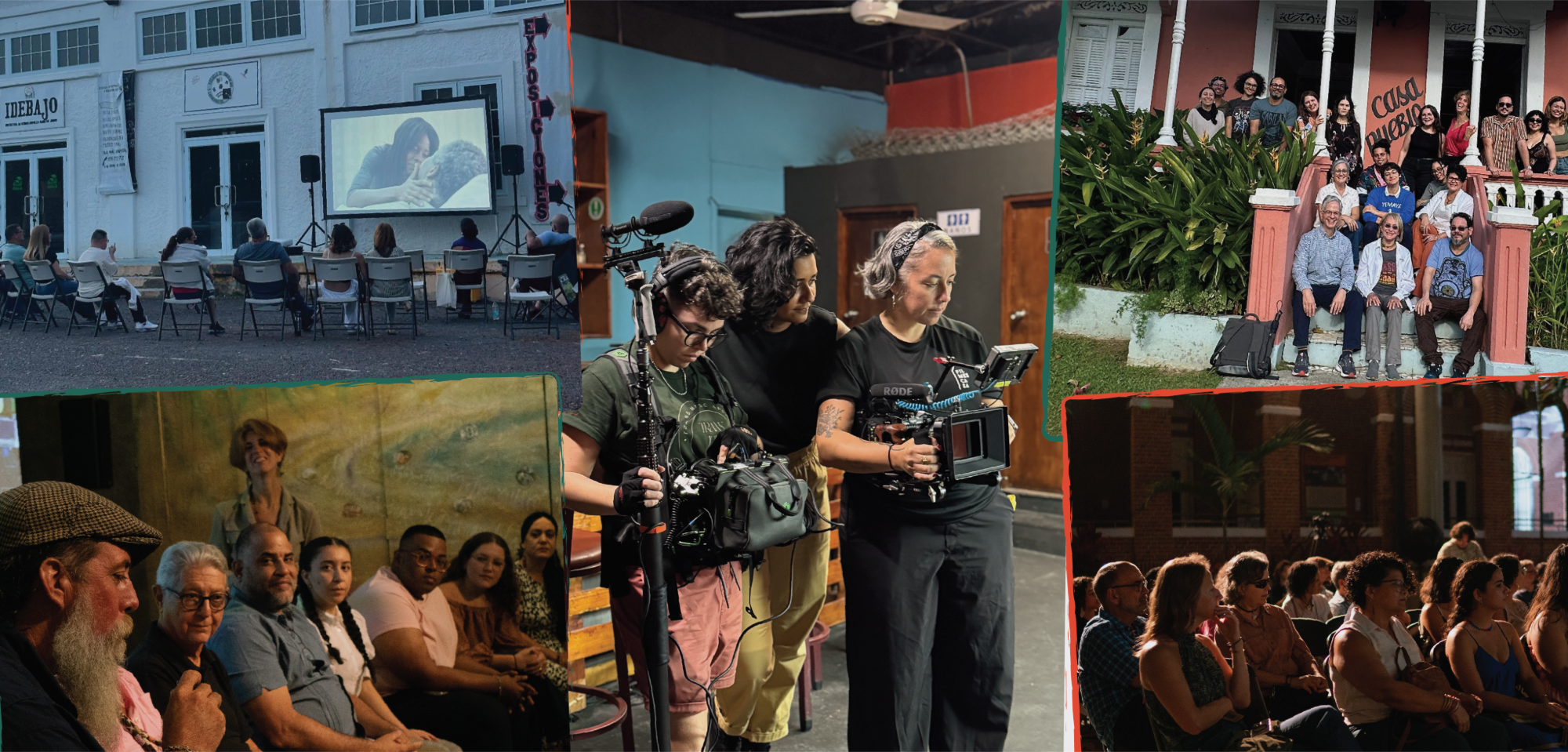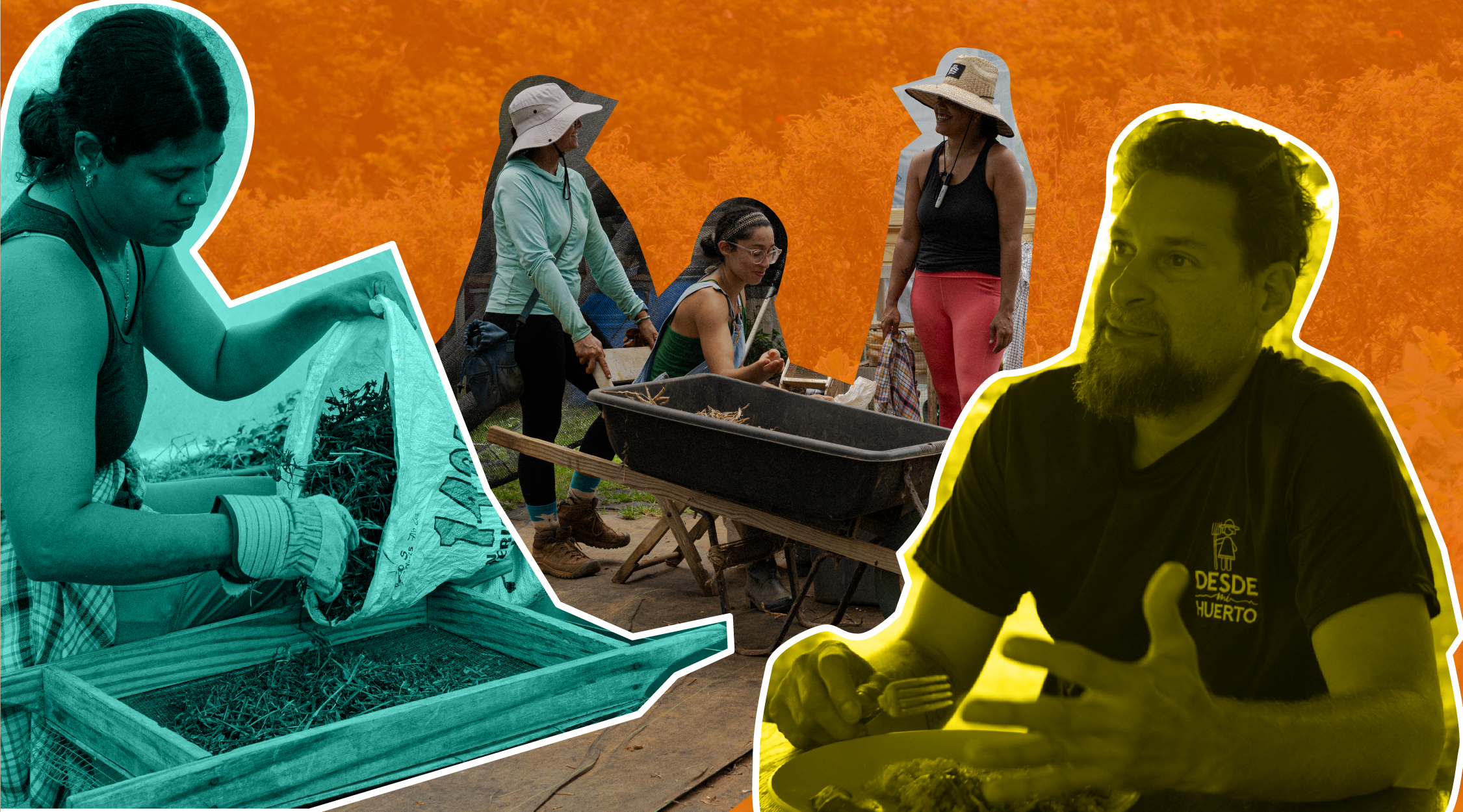
“Without seeds, there is no food”: Seed banks foster agriculture in Puerto Rico
In Puerto Rico and the Caribbean, how do we ensure communities have agency over their food systems? One solution is developing seed banks at various scales
This is a solutions journalism article, a rigorous practice that covers responses to social problems. This article was produced by 9 Millones with Proximate’s support.
“Do you know if there’s a place in Puerto Rico that sells local Caribbean seeds?,” my friend Olivia Walton texted me one March morning.
Olivia is an environmental educator at the Santa Cruz Environmental Association on the nearby island of Santa Cruz. One of her projects is a summer camp where young people learn about environmental justice. She told me she wanted to start a garden, but couldn’t find seeds. Just like in Puerto Rico, most of the food and agricultural supplies there—including seeds—are imported.
I shared with her the website of Desde Mi Huerto in Isabela, a company that produces and sells over a hundred varieties of seeds suited to our Caribbean climate. They’re known in Puerto Rico for their seed bank, which protects and preserves native crops. A few days later, Olivia excitedly sent me a photo of the package she received from Desde Mi Huerto, full of seeds produced right here in Puerto Rico.

I shared that story with Desde Mi Huerto’s founder, Raúl Rosado, on a sunny Wednesday afternoon in June. We were at the nearly ten acre farm where most of their seeds are grown. Five minutes away is a rescued school that houses their store and seed bank – a facility designed to maintain and preserve seeds.
For Rosado, the tradition of caring for local seeds is an important legacy. What started as a rooftop garden on his parents’ house twenty years ago, has grown into a full-scale operation dedicated to the adaptation, care, propagation, packaging, distribution and sale of certified USDA Organic organic seeds.
It is also a notable model of agroecology in Puerto Rico. Globally, the agroecology movement, led by smallholder farmers and peasants, has lifted up models for small-scale food production that rely on localized, cooperative farming. The movement is framed as an alternative to the multinational corporations that control food and seed production. Agroecology advocates argue that seed stewardship safeguards biodiversity while ensuring communities have agency over their food systems.
In Puerto Rico and the Caribbean, how do we foster that agency, critical for food sovereignty? One solution is developing seed banks at various scales.
Desde Mi Huerto is proof of what can be done here—they don’t just sell and process seeds adapted to our soils and climate, they uphold the tradition of guarding and sharing seeds.
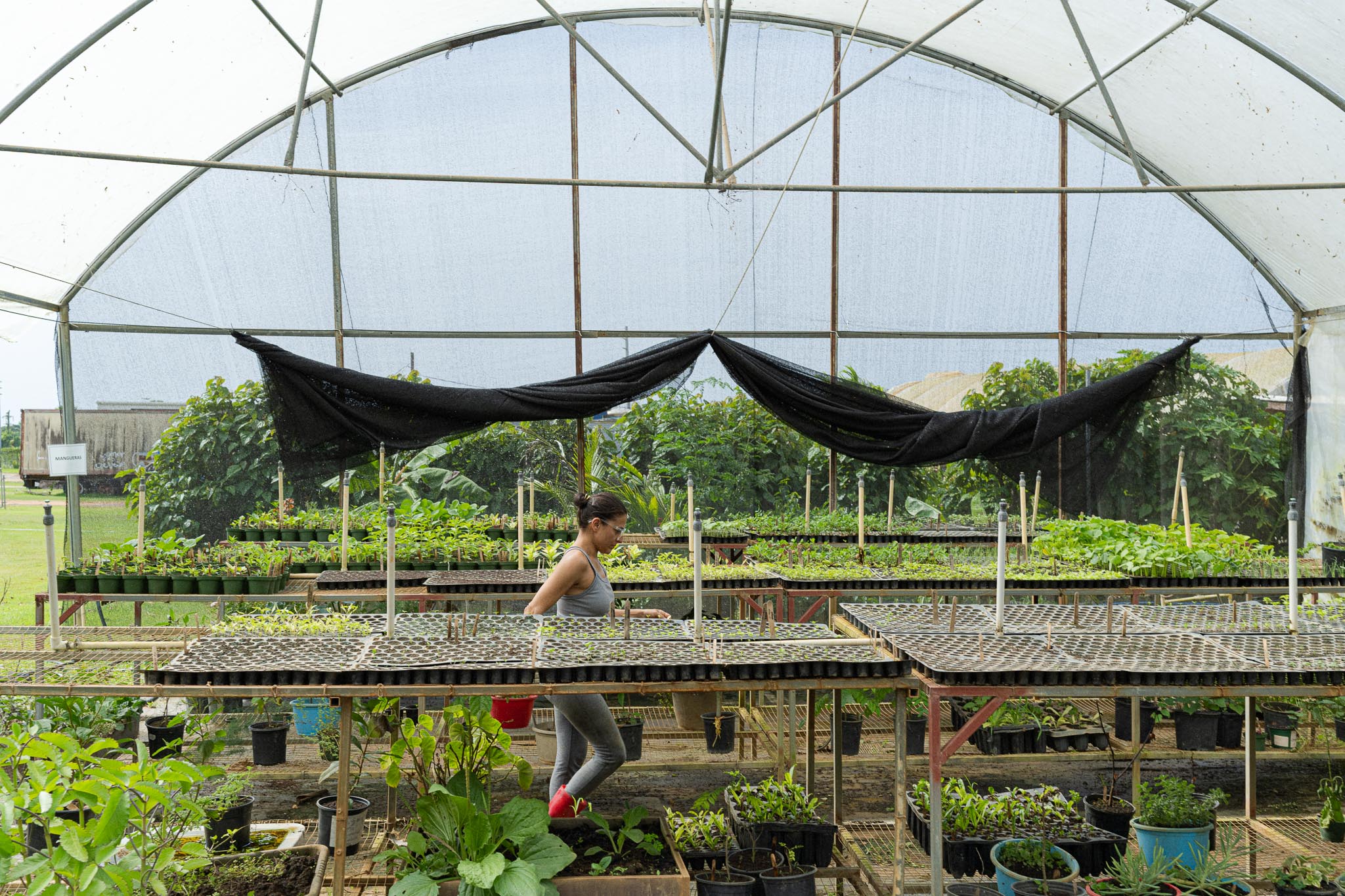
“Without seeds, there is no food”, Rosado emphasized.
Seed shortages feed Puerto Rico’s food insecurity
It wasn’t always like that. After Hurricane Maria struck in 2017, one of the main obstacles farmers faced while recovering their lands was the scarcity of seeds and agricultural materials.
“We import most of our vegetable, cereal, and legume seeds. They serve a basic function but aren’t ideal for our conditions,” explained Salvador Coleman, agroecology coordinator at Para La Naturaleza, an environmental conservation organization in Puerto Rico.
In 2022, farmers spent over $15 million on seeds, trees, and cuttings, according to the Agricultural Census—but the Puerto Rico Department of Agriculture doesn’t track how many seeds purchased by farmers are imported versus locally produced. The only information available in the Census refers to the production of some seeds, most of which are transgenic or hybrid seeds for exportation, and are given governmental incentives.
Adding to this are social, economic, and political challenges that make farming difficult here. The latest Agricultural Census shows farmers average 60 years of age, and many earn less than $20,000 a year. They also face occupational health risks working outdoors. Farming is hard work, and the struggle to find seeds only makes sustaining production harder.
Rosado said many farmers come to Desde Mi Huerto frustrated by how hard it is to get seeds. Until recently, the most accessible seed bank was at the Agricultural Experiment Station (EEA for its Spanish acronym) of the University of Puerto Rico (UPR). “They don’t have seeds anymore… maybe in some seasons, but very little,” Rosado said. The EEA, part of the Mayagüez Campus, has led agricultural research here for over 110 years. The Agricultural Extension Service has also been vital in supporting farmers by sharing scientific knowledge across the islands.
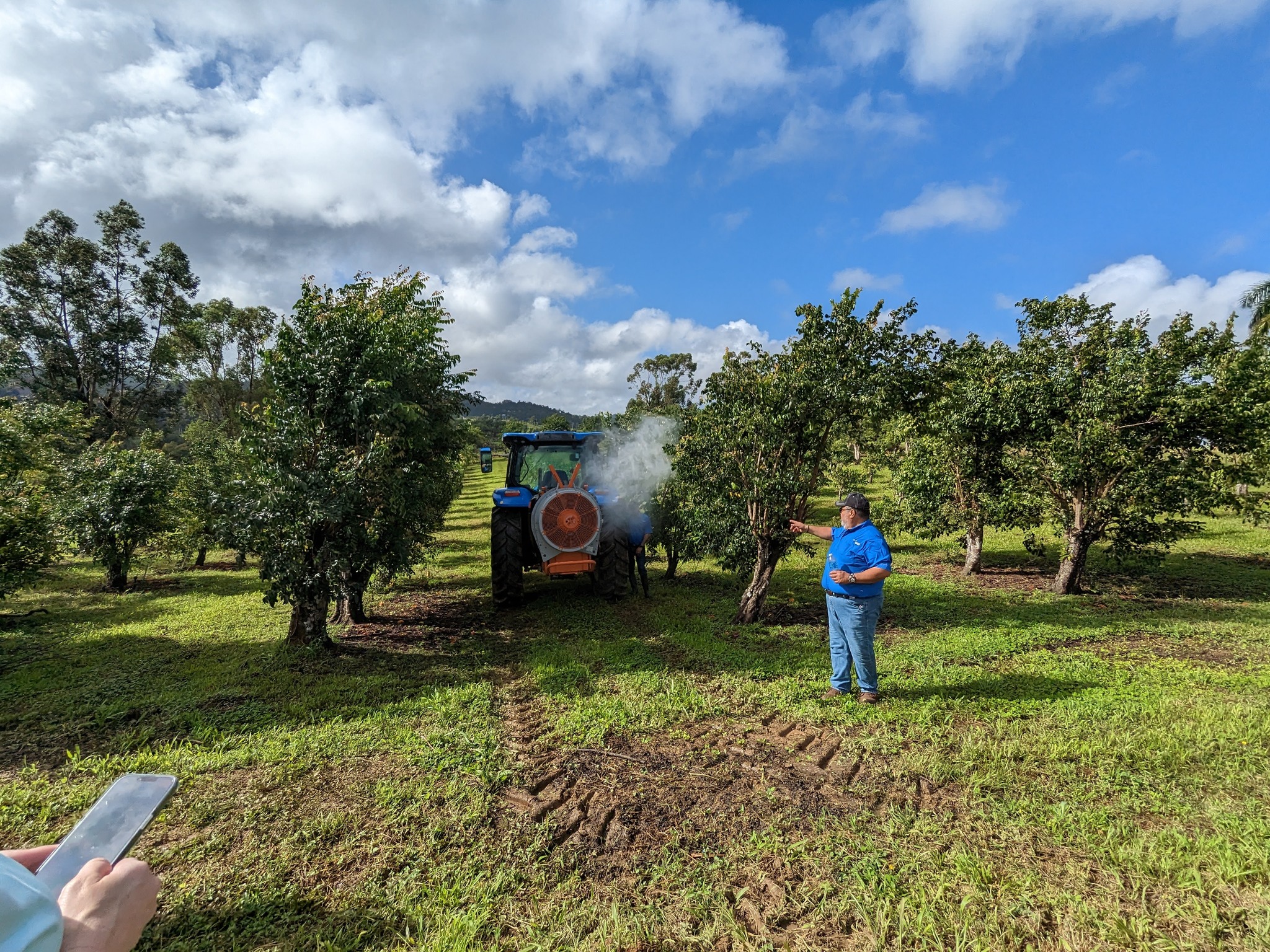
The Semilla Selecta Program was created in 1945 to primarily provide seeds for gardens. It relaunched in 2020 with online sales, since before people had to visit the station to check prices and availability. It’s a revenue-generating program for the EEA, which has faced $19 million in budget cuts, according to outgoing EEA Associate Dean Lucas Avilés. Though EEA’s main mission is “to develop research for agricultural development, and seed supply isn’t part of that,” EEA has been and remains a key player in local seed availability.
Avilés explained that the local Department of Agriculture had a program in the 1980s contracting EEA to produce seeds, but that program closed in the 2000s. Today, the department mostly works with private nurseries to produce coffee plants. EEA still maintains a collaborative agreement to produce some seeds.
The university's seed bank holds about 30 key crop varieties for local agriculture. “We keep producing because we know there's a gap… We’re planning to grow more in the direction of producing seeds for the market,” Avilés said. However, budget cuts limit their capacity to meet demand. Much of the university’s genetic material, including seeds, is stored in U.S. Department of Agriculture banks.
“There are pineapple varieties developed here [by EEA] that we no longer have seeds for. When needed, we have to request those varieties from the USDA germplasm bank. This happens with many varieties developed at the station,” he added. Sustaining genetic material on the island is difficult in an environment of continual budget cuts. The state has disinvested in the university, partly due to austerity measures and the imposition of a fiscal control board.
“Puerto Rico has valuable technical knowledge—as developed historically at EEA—but it’s not being allowed to fulfill its strategic role. Today, we’re witnessing its dismantling,” Coleman said. He stressed that political will and vision are essential to putting seed production at the heart of any agricultural development plan. “Thinking about the future of agriculture in Puerto Rico means starting with seeds. That means directing significant resources to recover collections and capabilities within the Experimental Stations,” he continued.
Seed banks as a tool to grow and harvest food sovereignty
Agroecologists—who balance human and natural benefits while upholding social and environmental justice—promote expanding and supporting community initiatives like solidarity brigades, support networks, and exchanges of knowledge and seeds.
“The seed is in people’s hands, and that’s the key. If people value and protect seeds, those seeds will endure,” Rosado told me as we went out for a walk around the farm and talked about “seed sovereignty,” or the right to preserve, share, and control seeds.
A native of Ponce, Rosado started growing and propagating plants on his family’s rooftop at 23 years old. Then he worked on half an acre of land in the town of Patillas. Over time, he noticed a constant exchange of seeds between farmers and non-farmers alike, whether in home gardens or commercial farms—a historic practice that has kept local production alive. “That’s when we realized, wow, this has social impacts... We have to protect and spread these seeds,” he told me while serving lunch made from the farm’s harvest.
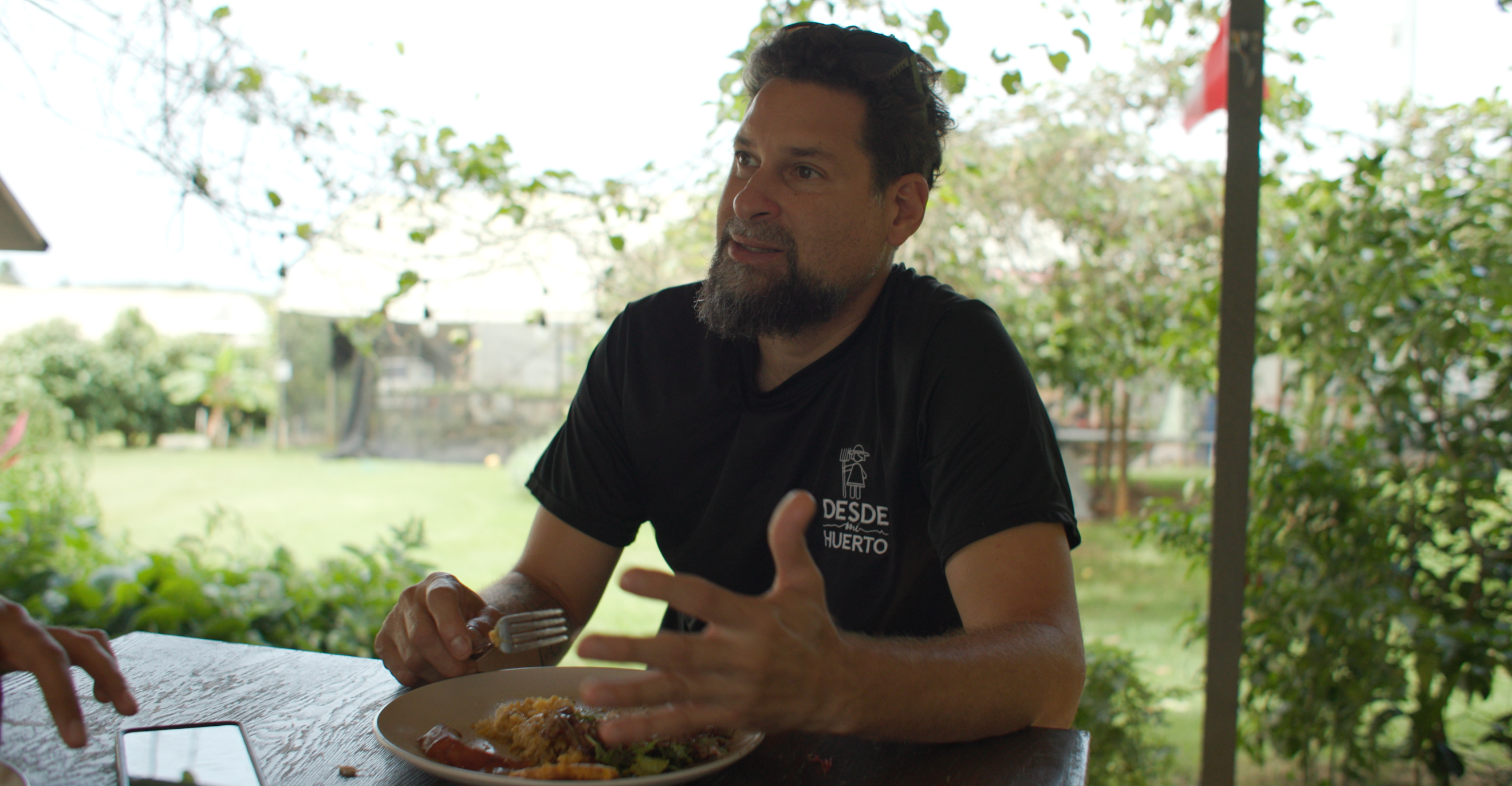
EUnder a shade house, part of the team was harvesting seeds. Nearly 75% of the seeds they sell and store come from that farm. While they do sell pound-sized packs depending on the crop and availability, most seeds are packaged in small quantities for home gardens and small-scale farms. The rest come from regional farms collaborating with Desde Mi Huerto—reflecting ongoing seed exchanges across our islands.
“Access to seeds should be a right,” Rosado said. “Not just access to food, but the ability to grow my own food.”
The right of communities to both food and control over food systems includes seed production and distribution. That idea guides Desde Mi Huerto’s work. But seed production requires time and resources many farmers lack. For example, large farms might be able to dedicate part of their land to seed production, but not all. That’s why they’re focusing their efforts on building capacity for small-scale, agroecological seed production.
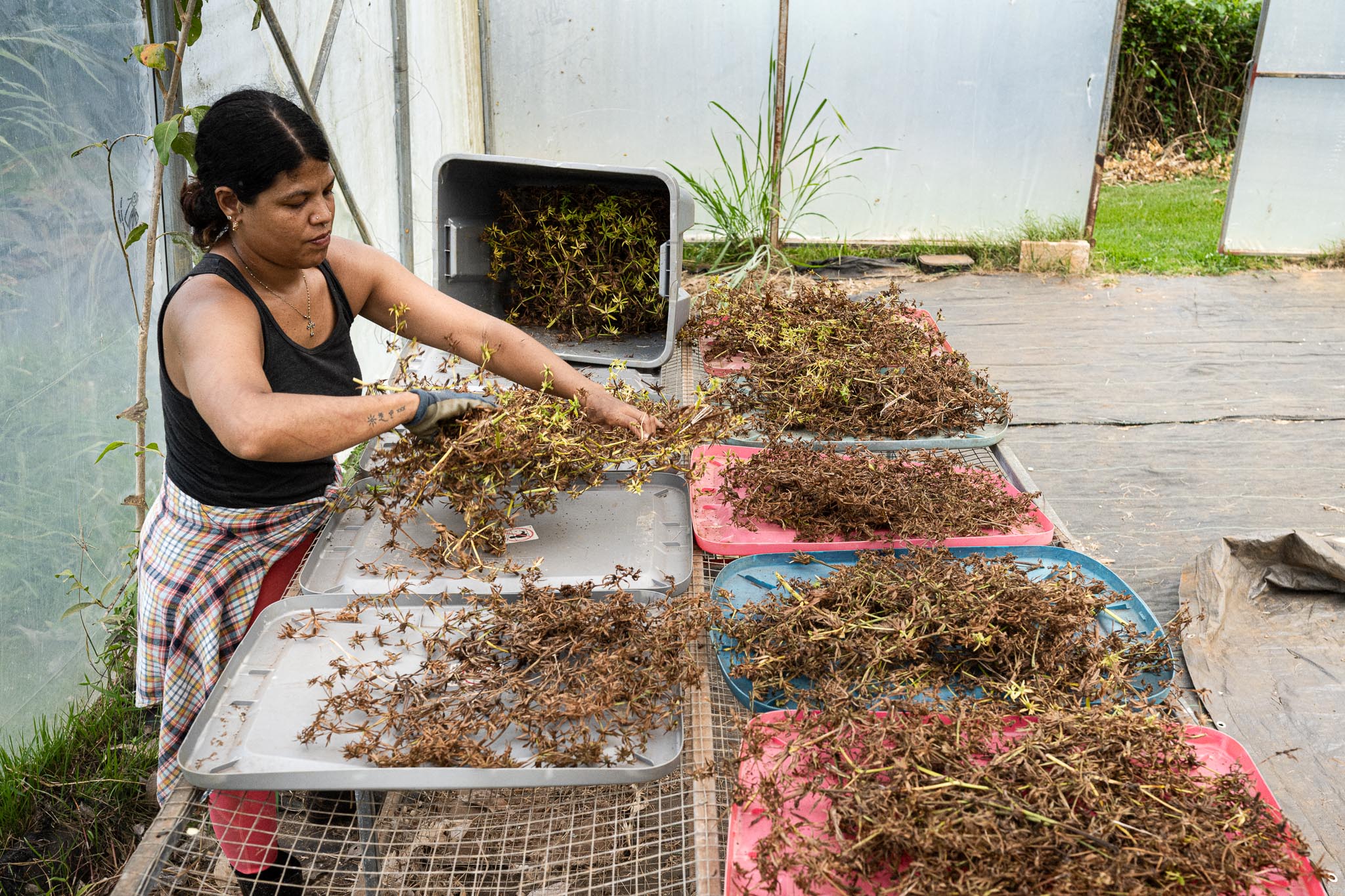
Grants and outside support as catalysts
Desde Mi Huerto has secured grants that have helped build a “resilient” seed bank—one with infrastructure designed to withstand climate challenges and generate its own solar power. In collaboration with the Banco de Alimentos de Puerto Rico and Feeding America, Para La Naturaleza provided funding to support this resilience. “Their work needs to continue and expand, but to do that both public and private sectors must recognize these initiatives need sustained backing, including subsidies,” Coleman told me.

The grants and workshops they offer have diversified income and kept seed prices affordable. Besides online sales, Desde Mi Huerto sells seeds in garden centers, hardware stores, supermarkets, and corner stores at prices ranging from $2 to $5 depending on the seed type.
Later, as we finished our lunch and enjoyed the two o’clock breeze with some coffee, Rosado stressed the importance of public, private, and academic collaboration to reduce Puerto Rico’s fragmentation and keep seeds accessible to the public. “I don’t own any seed I work with; I just care for and spread them.” That reflects the agroecological commitment that seeds are more than products meant just to make money.
After coffee, he said he had to return to the store and finish some tasks before clocking out at four. Unlike when he started, he’s made peace with the idea that he deserves rest and free time. The mentioned grants, have helped them buy agricultural machinery to make production more efficient, following agroecological principles. But more importantly, it’s helped protect the quality of life of workers.
“It’s not about buying machines just to buy them, but to get the work done faster so I have time to take the kids to the movies, go to the beach... spend time with family. I always tell people, thanks to this help, we weren’t forced to take out a loan on equipment… so seed prices stay low,” he said.
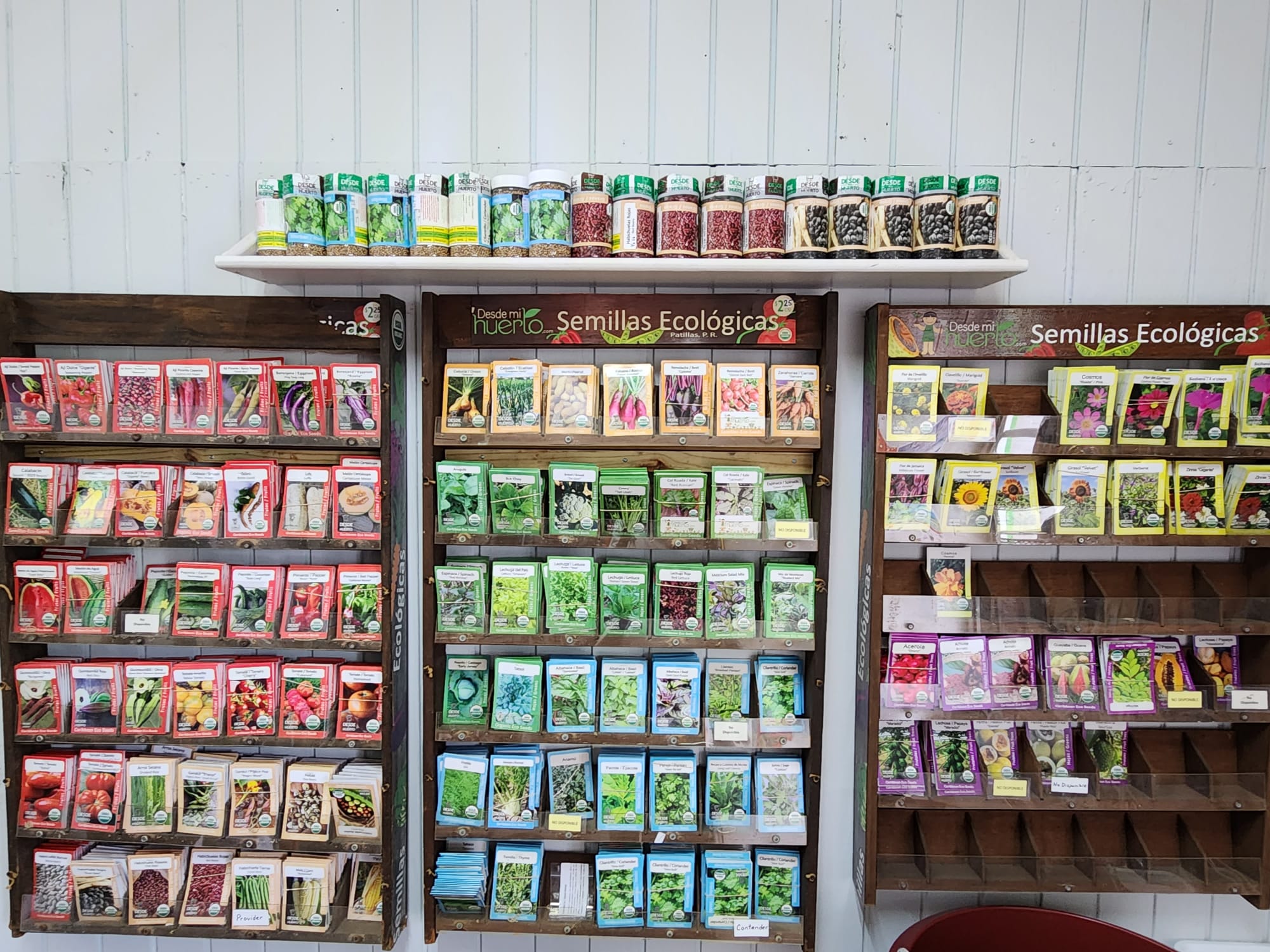
Since Hurricane Maria, transforming Puerto Rico’s food system to support the population while ensuring a dignified life for those in farming and fishing has gained importance. Organizations like Hispanic Federation and World Central Kitchen have shown interest in supporting these sectors. Yet, grant application processes are often cumbersome.
The agricultural sector “wants to increase production, but without funds, it’s tough to move forward,” Rosado said after washing his cup. Moreso, grant writing takes time and technical support.
Scaling production requires partnerships
One Saturday in July, before finishing this story, I attended the Festín en la Tala at the Josco Bravo Agroecological Project farm in Toa Alta. It’s a monthly event to support “the buen vivir (good living) of their farmers,” highlighting the diversified activities and income streams farmers have to do to sustain their productions. They invite chefs committed to sustainable gastronomy to cook with farm products. While touring the farm, I asked farmer Ian Pagán Roig if they produce their own seeds.
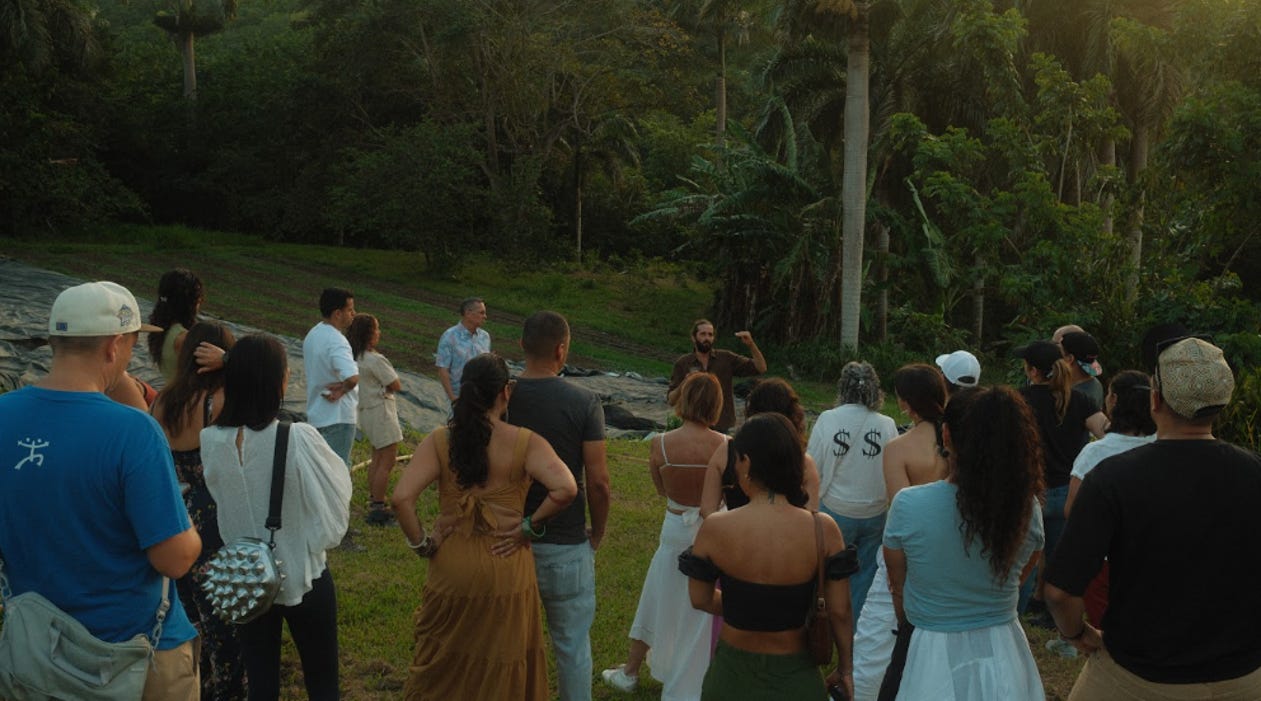
“We produce as much as we can—corn, sweet pepper, eggplant—but some crops don’t produce seeds here in the tropics. Finding seeds [here in Puerto Rico] is a challenge. For example, we grow ñame. I called all the places I usually buy seeds from—none had any. Everyone told me, ‘Buy seed boxes from importers,’” he said. He described the difficulties obtaining seeds like the Puerto Rican Soler tropical squash. “We usually save seeds, but we were running low. I contacted Semilla Selecta, a reliable source, but they had none. I reached out to Desde Mi Huerto—they only had small packs of 10 seeds. How can a farmer not find seeds for Soler tropical squash, one of the most common squashes in the country?” Pagán Roig asked, recalling this year’s situation around May. This conversation made me realize current seed banks need more support to expand capacity or that more people should replicate their models.
Avilés was clear about how the lack of university funding makes seed bank work—technical, administrative, agronomic—very hard. He also acknowledged farmers like Pagán Roig can’t find seeds at EEA because supply doesn’t meet demand.
“This is cyclical: when everyone decides to plant a particular crop, the few seeds we produce run out. But if a farmer requests ahead and says, ‘Next year I want to plant 30 acres of calabaza Solar; I need seeds,’ we can produce enough,” he said.
The professor added that Puerto Rican Agriculture Secretary Josué Rivera Castro has reached out to reactivate seed production agreements like those in the ’80s.
A future that continues tradition without sacrificing quality of life
I wonder how our food system would look if we had the resources for cohesive planning and sustainable seed production.
That June afternoon, before leaving Desde Mi Huerto’s farm, I told Raúl about Joshua “Yerbani” Rodríguez, a recent UPR graduate from Utuado who just launched an agroecological project called Finca Semilla. Like many graduates from Puerto Rico’s only sustainable agriculture program, Yerba wants to dedicate himself fully to farming but faces financial, technical, and administrative challenges. Yerba isn’t just producing food for his mountain community and selling commercially, he plans to start a seed bank.
“There’s no food sovereignty without freedom to access, manage, and care for seeds,” the young farmer told me when I mentioned writing this piece. “Networks of support with ‘seed guardians’—as I call them—are bridges guiding us toward food sovereignty. Puerto Rico needs places dedicated to producing and protecting seeds. Places that share land, time, and energy to provide seeds for people who only have time to grow food day-to-day,” he added.
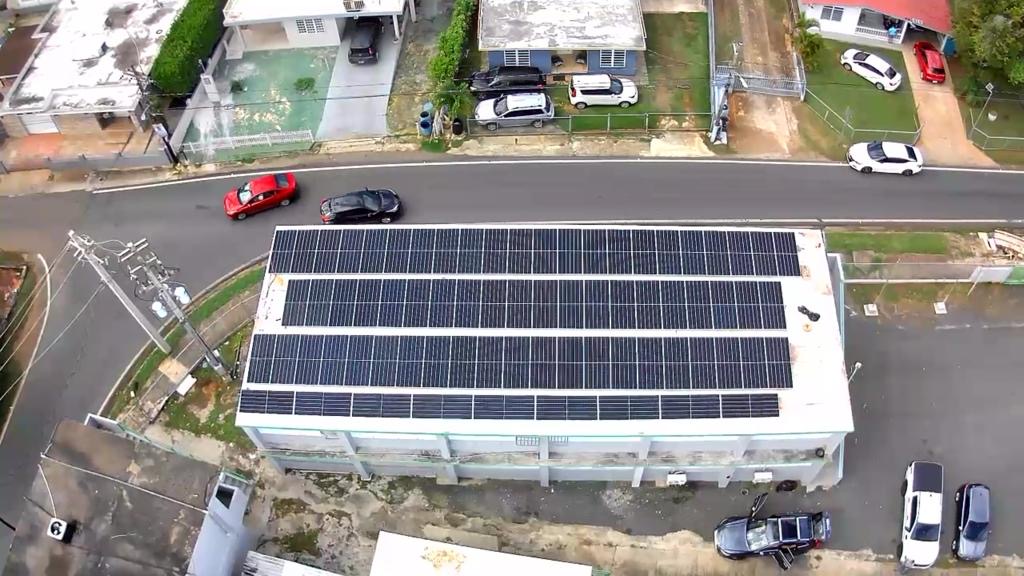
This is just one example of many small-scale initiatives across Puerto Rico, and others we may not know about yet. Rosado says it shows the tradition of saving and exchanging seeds preserves agricultural diversity, fosters adaptation, and strengthens our food system. “It’s part of humanity’s history.”
Seeds about to bloom and bear fruit
In August, I checked back with Olivia, who no longer worries like before about finding Caribbean seeds. “When I discovered I could find seeds not only near me but also across in my sister island, Puerto Rico, I felt this garden would connect me even deeper with my roots,” she texted. Her crops of okra, watermelon, beans, and others, sent from Isabela, are about to bloom and bear fruit.
Where else could she have bought or imported seeds for that garden if she hadn’t had the option to get them from Desde Mi Huerto? How do we create seed farms in Puerto Rico where farmers engage in conservation? Philanthropy can support these efforts. The challenge is applying it fairly, without undermining communities’ agency or fostering dependency and inequality. The government also has a critical role.
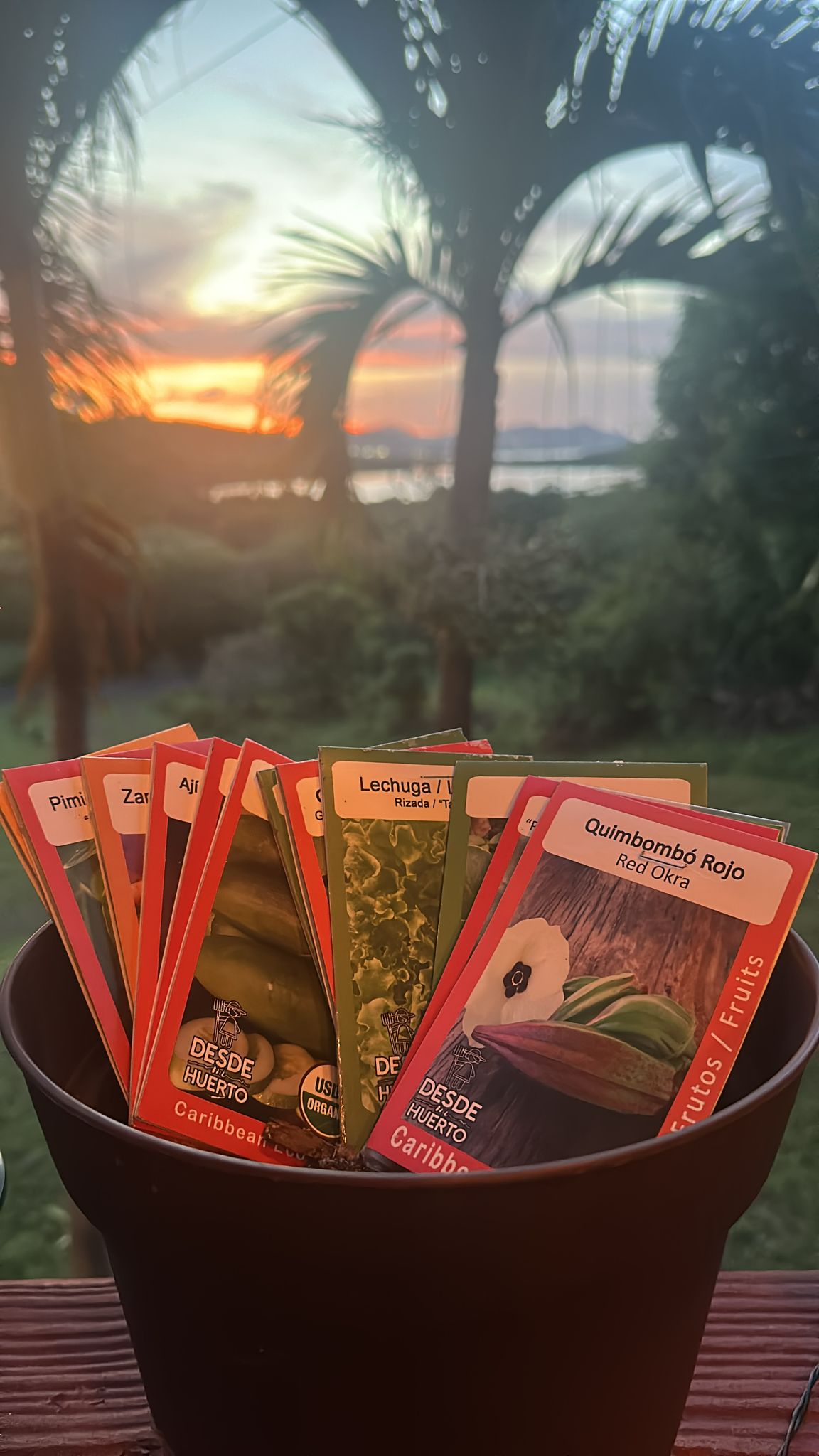
This year, Olivia shared the agroecological lessons her grandmother taught her with teenagers in the Environmental Changemakers summer camp, which she created thanks to a grant from the Switzer Foundation. The students visit farms in Saint Croix and learn about food sovereignty. Most kids are surprised to learn over 90% of Saint Croix’s food is imported. “I don’t just want to surprise these students—I want to work with them to find creative solutions. Seed banks give me and my students hope for a more resilient, sustainable future for our island,” she emphasized.
Luis Alexis Rodríguez Cruz is a writer, science communicator, and researcher from Juana Díaz, Puerto Rico.


